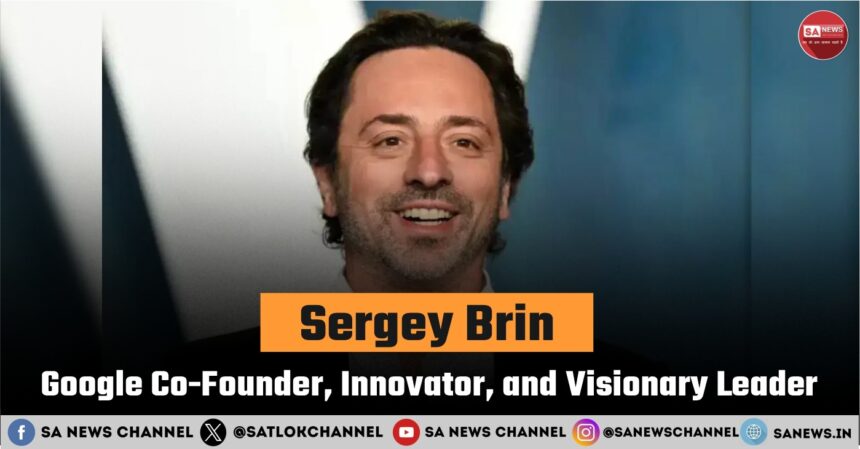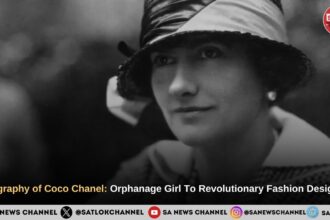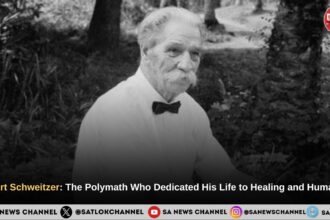Sergey Brin stands as one of the most influential figures in modern technology. As the co-founder of Google, he helped create the world’s dominant search engine, reshaping how billions of people find information daily. From humble beginnings as a Soviet emigrant to becoming a centibillionaire innovator, Sergey Brin’s story highlights the power of curiosity and bold ideas. This biography delves into his life, achievements, and ongoing impact, offering insights for students, researchers, and anyone interested in tech history.
- Sergey Brin: Early Life and Immigration Struggles
- Sergey Brin’s Academic Journey and Stanford Breakthroughs
- Sergey Brin and the Founding of Google
- Sergey Brin’s Leadership in Google’s Global Expansion
- Sergey Brin’s Diverse Ventures and Investments
- Sergey Brin’s Philanthropy and Social Contributions
- The Personal Life of Sergey Brin
- Sergey Brin’s Lasting Legacy in Technology and Society
- Conclusion: The Timeless Impact of Sergey Brin
- Beyond Innovation: Sergey Brin’s Quest for Meaning
Sergey Brin: Early Life and Immigration Struggles
Sergey Brin’s early years were marked by challenges in the Soviet Union. Born on 21 August 1973 in Moscow to Jewish parents Mikhail and Eugenia Brin, he grew up in a modest three-room apartment shared with his paternal grandmother. His father, a mathematician, and his mother, a NASA researcher, both graduated from Moscow State University. Anti-Semitism in the 1970s Soviet regime posed significant barriers to their careers and safety.
In 1978, the family applied for an exit visa, a decision that led to immediate hardship. Mikhail lost his university position, and Eugenia faced dismissal from her job. For eight months, they endured uncertainty as “refuseniks,” taking low-paying temporary work while fearing permanent denial. Visas were finally approved in May 1979, allowing the family to leave. They spent time in Vienna and Paris before arriving in the United States on 25 October 1979, aided by the Hebrew Immigrant Aid Society.
Settling in Maryland, young Sergey adapted quickly to American life. His father secured a teaching role at the University of Maryland, while his mother joined NASA’s Goddard Space Flight Center. These experiences instilled in Sergey Brin a deep appreciation for education and opportunity. He attended Paint Branch Montessori School and later Eleanor Roosevelt High School, where his interest in mathematics and computers began to emerge. This period of transition built the resilience that would define Sergey Brin’s future successes.
Sergey Brin’s Academic Journey and Stanford Breakthroughs
Sergey Brin’s path to academia was swift and distinguished. In 1990, at age 17, he enrolled at the University of Maryland, College Park. By 1993, he had earned a Bachelor of Science in computer science with honours, alongside high honours in mathematics—at just 19 years old. During his undergraduate years, Sergey Brin interned at Wolfram Research, contributing to the development of Mathematica software, which honed his programming skills.
That same year, Sergey Brin moved to Stanford University on a prestigious National Science Foundation graduate fellowship. He completed a Master of Science in computer science in 1995 and began PhD work, focusing on data mining and pattern extraction from large datasets. At Stanford, Sergey Brin met Larry Page during a graduate orientation session. Their shared passion for organising the internet’s vast information sparked an instant collaboration.
Together, they authored a seminal paper titled “The Anatomy of a Large-Scale Hypertextual Web Search Engine,” introducing the PageRank algorithm. This system ranked web pages based on backlinks, addressing the limitations of existing search tools that relied on simple keyword matching.
Sergey Brin’s academic pursuits laid the groundwork for revolutionary technology. Though he paused his PhD in 1998 to pursue business, his Stanford innovations remain a cornerstone of modern search engines.
Sergey Brin and the Founding of Google
The creation of Google marks the pinnacle of Sergey Brin’s inventive spirit. In 1996, working from Larry Page’s dormitory, Sergey Brin and Page prototyped their search engine, initially called Backrub. Using scavenged computer parts and Stanford’s network, they indexed millions of web pages, demonstrating superior relevance over competitors like AltaVista.
By mid-1998, Backrub handled 10,000 searches daily, prompting Sergey Brin and Page to incorporate Google Inc. They rented a garage in Menlo Park from Susan Wojcicki (future YouTube CEO) for $1,700 monthly, turning it into their first office. Early funding came from angel investors, including a $100,000 cheque from Andy Bechtolsheim. Sergey Brin served as Google’s first president of technology, overseeing product development.
Google’s growth was explosive. By 2000, it became the default search provider for Yahoo!, and in 2004, it went public, valuing the company at $23 billion. Sergey Brin’s PageRank not only powered search but influenced advertising through AdWords, generating billions in revenue. His hands-on role ensured Google’s “Don’t be evil” motto guided ethical innovation.
Sergey Brin’s Leadership in Google’s Global Expansion
Under Sergey Brin’s guidance, Google evolved from a startup to a tech giant. As co-president with Page until 2015, he championed moonshot projects via Google X (now X, the moonshot factory). Initiatives like self-driving cars (now Waymo) and Google Glass stemmed from his vision for ambitious, user-focused tech.
In 2015, Sergey Brin helped restructure Google into Alphabet Inc., separating core businesses from experimental ventures. He became president of Alphabet, focusing on long-term strategy until stepping down in December 2019. Even in semi-retirement, Sergey Brin remained influential. In December 2023, he returned to advise on AI research, contributing to models like Gemini. By 2025, amid AI surges, Sergey Brin’s wealth grew by $55 billion in three months, reaching $219 billion and ranking him sixth globally.
Also Read: Sylvia Earle Biography: The Woman Who Dived into the Heart of the Ocean
Sergey Brin’s leadership emphasised scalability and ethics, navigating antitrust scrutiny while expanding into Android, YouTube, and cloud computing.
Sergey Brin’s Diverse Ventures and Investments
Beyond Google, Sergey Brin has pursued ventures blending technology and exploration. In 2008, he invested $4.5 million in Space Adventures, eyeing space tourism. He co-owns a fleet of aircraft, including a modified Boeing 767-200 equipped for scientific research, housed at NASA’s Moffett Field.
A key passion is sustainable aviation. Sergey Brin backs LTA Research, developing helium airships for humanitarian aid. In May 2025, their 124-metre Pathfinder 1 completed its first flight over San Francisco Bay, a milestone in eco-friendly transport. Recently, he invested $15 million in Soneira, a biotech firm using ibogaine for mental health treatments, reflecting his interest in psychedelics.
Sergey Brin’s portfolio also includes luxury assets like the 142-metre superyacht Dragonfly, part of his “Fly Fleet.” These pursuits showcase his commitment to pushing boundaries in aerospace, health, and leisure.
Sergey Brin’s Philanthropy and Social Contributions
Philanthropy drives much of Sergey Brin’s post-Google focus. Motivated by his mother’s Parkinson’s disease (she passed away in 2024), he has donated over $1 billion to research, including to the University of Maryland School of Medicine and the Michael J. Fox Foundation. In 2009, he gave $1 million to HIAS, honouring his family’s immigrant aid.
Through the Sergey Brin Family Foundation, he supports education, science, and Jewish causes. In October 2025, his nonprofit gained $261 million from the MapLight IPO, boosting transparency initiatives. Politically, Sergey Brin backs Democrats, donating to Barack Obama’s 2012 campaign and the DNC. Notably, he attended Donald Trump’s second inauguration in January 2025, signalling bipartisan engagement.
Sergey Brin’s giving emphasises systemic change, from health breakthroughs to immigrant rights, aligning with his values of equity and progress.
The Personal Life of Sergey Brin
Sergey Brin’s personal world balances family and privacy. Raised Jewish but non-religious, he values intellectual pursuits over dogma. He married Anne Wojcicki in 2007; they had two children before separating in 2013 and divorcing in 2015. In 2018, he wed Nicole Shanahan, with whom he had a daughter; their marriage ended in 2023 amid reported personal conflicts. Today, Sergey Brin, father to three, maintains a low profile in Silicon Valley.
In 2025, he urged Google employees to return to offices five days weekly, promoting collaboration. His hobbies include kitesurfing and aviation, reflecting an adventurous spirit.
Sergey Brin’s Lasting Legacy in Technology and Society
Sergey Brin’s legacy is etched in the digital age. Inducted into the National Academy of Engineering in 2009, he received awards like the Marconi Fellowship (2004) and TR35 Innovator (2002). Forbes ranked him among the world’s most powerful in 2009. His net worth, tied to Alphabet shares, underscores his economic influence.
As AI and sustainability rise, Sergey Brin’s early bets on data and exploration continue to inspire. From PageRank’s democratisation of knowledge to airship innovations, his work fosters global connectivity.
Conclusion: The Timeless Impact of Sergey Brin
Sergey Brin’s journey—from Moscow’s uncertainties to Alphabet’s boardrooms—embodies the immigrant dream realised through ingenuity. His co-founding of Google revolutionised information access, while his philanthropy and ventures address pressing challenges like health and climate. At 52, with $219 billion in wealth and active AI involvement, Sergey Brin remains a force in tech. His story encourages aspiring innovators: persistence and ethical vision can change the world. As search evolves with AI, Sergey Brin’s foundational contributions ensure his place in history.
Beyond Innovation: Sergey Brin’s Quest for Meaning
Sergey Brin’s legacy extends far beyond algorithms and billion-dollar enterprises. His journey—from navigating Soviet oppression to transforming global communication—echoes a deeper human pursuit: the search for truth, purpose, and understanding. Technological success, however vast, still leaves an emptiness that only spiritual clarity can fill.
As we marvel at Brin’s achievements, we are reminded that genuine wisdom lies not just in building intelligent machines but in awakening the intelligence of the soul. For those moved to explore life’s higher purpose and divine connection, books like “Gyan Ganga” and “Way of Living” by Saint Rampal Ji Maharaj offer timeless insights into authentic worship, guiding seekers toward peace, truth, and lasting fulfillment.









